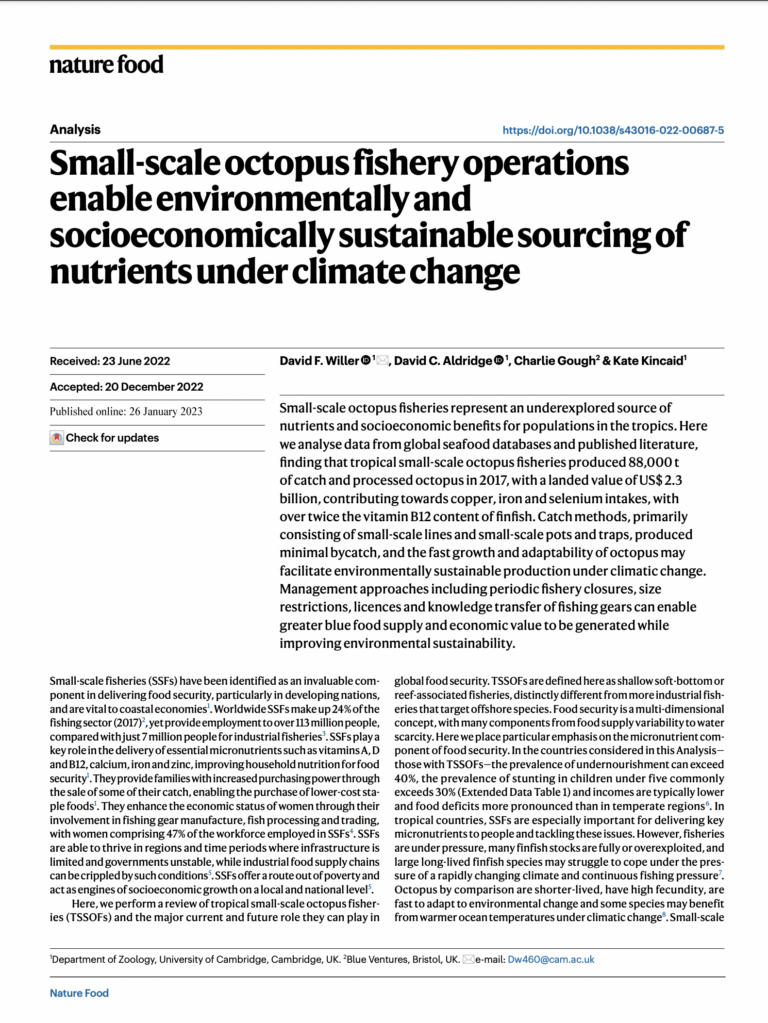Small-scale octopus fisheries represent an underexplored source of nutrients and socioeconomic benefits for populations in the tropics. Here we analyse data from global seafood databases and published literature, finding that tropical small-scale octopus fisheries produced 88,000 t of catch and processed octopus in 2017, with a landed value of US$ 2.3 billion, contributing towards copper, iron and selenium intakes, with over twice the vitamin B12 content of finfish. Catch methods, primarily consisting of small-scale lines and small-scale pots and traps, produced minimal bycatch, and the fast growth and adaptability of octopus may facilitate environmentally sustainable production under climatic change. Management approaches including periodic fishery closures, size restrictions, licences and knowledge transfer of fishing gears can enable greater blue food supply and economic value to be generated while improving environmental sustainability.












